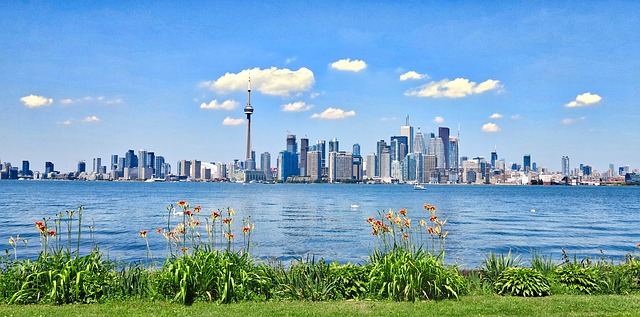Nowhere do so many exiled Ukrainians live as in Canada. They see themselves as guardians of the independence of their homeland. This is now in danger.
EDMONTON | The music plays and Murray Howell jumps onto the stage. He spins, does a somersault and the audience claps rhythmically along. Friday in the Canadian city of Edmonton: Howell dances a hopak - a Ukrainian folk dance - on the stage of Alberta University. He is wearing a traditional shirt, plush trousers and red leather boots.
"On stage I am full of emotion. My mother's Ukrainian heart comes through," he laughs. The 31-year-old is Ukrainian-Canadian and dances in the Shumka Ensemble, one of the most successful Ukrainian folklore groups in North America.
Around 1.2 million Canadians have Ukrainian roots like him, it is the largest diaspora outside the motherland and Russia - and it is growing. Every year, between 50,000 and 100,000 Ukrainians immigrate to Canada.
Many are watching with great concern what is currently happening in Europe and support the new, pro-Western government in Kiev. "I was born in Canada, but deep inside I am Ukrainian," Howell explains. "I am very moved by what is happening in my parents' homeland."
Roman Brytan feels similarly. The journalist hosts Edmonton's Ukrainian-language radio programme. His grandparents had emigrated after the war, his parents raised him bilingually. When he speaks, he often switches from English to Ukrainian and vice versa. In his broadcast, Brytan also addresses the political situation. "Many listeners are worried that Ukraine might lose its independence."
Ukrainian Canadians have seen themselves as guardians of their mother country's independence since the end of the Soviet Union. The ties between Canada and Ukraine are correspondingly close: Canada was the first Western country to recognise Ukraine's independence in 1991. Prime Minister Stephen Harper was the first head of government to visit the new Ukrainian interim government, and he is considered one of the harshest critics of Russia's annexation policy.
This is also due to Paul Grod, the president of the Ukrainian-Canadian Congress. Grod is an influential man in Canada and often accompanies Canadian politicians on trips to the homeland of his ancestors. He was banned from entering the country by the government in Moscow because of his pro-Western commitment. Grod calls President Vladimir Putin a dictator and the annexation of Crimea a criminal act.
Almost one in two has Ukrainian roots
The Ottawa government has also broken off all military cooperation with Moscow at his behest, imposed economic sanctions, been the first to call for Russia's expulsion from the G8 and revoked the visas of some Russian politicians and diplomats.
This is popular in Canada, including Vegreville, a community outside Edmonton. The place was one of the centres of Ukrainian immigration in the 19th and 20th centuries. Almost every second inhabitant has Ukrainian roots. At the entrance to the village, the residents have erected the world's largest pysanka - a giant painted metal Easter egg.
Laryssa Toroshenko works in Vegreville in a Ukrainian open-air museum. Wooden churches with onion domes and old farmhouses line the grounds. The highlight of the year is "Ukrainian Day" in August, when up to 10,000 visitors arrive for the harvest festival.
Toroshenko was one of 2,000 Canadians who attended the last elections in Ukraine as an official observer. She is particularly concerned about civil society and feels that both parties to the conflict lack an understanding of democracy. "You have to respect the will of the people," she says. "You can't always put your head through the wall."
Father Cornell Zubritsky takes a similar view. The 44-year-old wears a grey beard and a necklace with a wooden cross. Zubritsky is the priest of the Ukrainian Orthodox Cathedral, one of five such parishes in Edmonton. About 600 people belong to it.
On a Sunday shortly before Easter, 120 people have gathered in the cathedral. The room is full of incense, there are icons on the altar. The tensions between Russians and Ukrainians are also palpable in the congregation. "Some Canadian Ukrainians speak Russian and feel more connected to Russia," Zubritsky explains. "This creates discussions with those Ukrainians who don't want their old homeland to become an appendage to a Russian empire."
And what if Ukraine does regress politically and the Russians take over again? That would divide his community, says Zubritsky, and he doesn't want to see that happen personally either. "I am a Canadian and Ukrainian patriot. That would break my heart."
